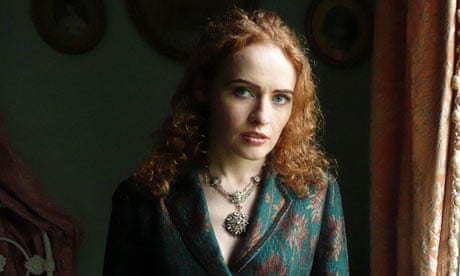Could historian Kate Williams be the next Doctor Who? She can build her own Tardis, after all. Sitting in the Edwardian elegance of her north London house, the academic and novelist confides: "When I was a child one of my first games was a time machine which I made for my brother – a big box covered in silver and bits of cellophane. I'd close him up in it and joggle him and say, 'We're in Victorian times now... and now we're in Egyptian times and I can see all these pyramids and pharaohs.' He was like, 'Let me out.'"
These days her methods are more "bluestocking" than Blue Peter, as she puts it. Williams studies overlooked or crassly simplified women and reveals their complexity, intelligence and significance to history. Her first book, England's Mistress, was about Emma Hamilton, who became the mistress of Lord Nelson and was, as Williams says, "from nowhere, the poorest strata of society, intended for nothing more than being a ballast to the industrial revolution." When Williams discovered a letter by her "it was as if a whole heart had been betrayed on to the page."
The next, Becoming Queen, was about the youth of Queen Victoria, and soon, Williams will release Young Elizabeth, a biography of the present queen.
Williams is acclaimed for her sharp writing and scholarly depth – she won a £1m advance from Penguin to write two historical novels, the first of which is about to be published. Given her obvious interest in women in history, it seems odd that her latest book – and first novel – The Pleasures of Men, focuses on a male serial killer of women. Set in Spitalfields in 1840, it's about a young woman who is tormented by a secret from her past. She becomes obsessed by a series of brutal murders by a man dubbed the Man of Crows and the book builds, addictively, to her final confrontation with him.
The Pleasures of Men is an intense, intelligent and hugely entertaining read. Following previous successes and appearances on TV shows such as Timewatch, Young Victoria and Restoration Home it will add Williams to the ranks of contemporary queens of historical fiction, which include Sarah Dunant, Sarah Waters, Tracy Chevalier, Susannah Dunn, Philippa Gregory, Michelle Lovric and Hilary Mantel. But I question why Williams participates in the literary fetishisation of men who kill women. She counters that it's the fetishisation itself that interests her: "Why do we invest murderers with this amazing existential greatness? Why have they got to be so special, so evil, so interesting, rather than us thinking these are pathetic figures who shouldn't be remembered at all? We don't invest victims with such greatness."
Away from the fiction shelves Williams is one of a generation of historians, including Amanda Foreman, Marina Warner, Helen Castor, Sarah Gristwood, Alison Weir, Lisa Hilton, Bettany Hughes and Antonia Fraser, who are restoring women to history, cultural respect and public knowledge. It is a position that has led her to publicly dispute David Starkey's criticism about the "feminisation of history". Born and brought up in a Staffordshire village, she did her BA and PhD at Oxford, with a master's in 18th-century writing and society at Queen Mary's, London, in between, plus a master's in creative writing at Royal Holloway, London, where she now teaches.
It is a career that has led her to argue with Starkey's view that "a proper history of Europe would be "a history of white males".
"It's the 21st century. It's untenable to suggest that women had no significance and no interest and that just because they didn't vote they had no relevance to the course of our history. Even if women had no power in a society – which isn't the case and never has been – the fact that we were alive is significant in itself. I think women have to be put back into culture at all levels."
This is significant given the ageist sexism of The Iron Lady, which portrays the octogenarian Thatcher as a befuddled, desperate, pathetic, repetitive fool, shuffling about, obsessed with her late husband. Williams agrees that culture has a problem with powerful women. "People are not happy with women in actual power, yet we seem to be happy to take women on as figureheads, objects, like queens. It's a powerful yet politically powerless role. Meanwhile, there are so few women MPs. Will we ever have a female chancellor – will we ever put a woman in charge of our economy?"
This wariness apparently extends from cabinet jobs to TV history. Williams is frustrated by the inevitable comments about her appearance whenever she appears on TV. "I wonder if there'll ever be a time where you're not judged by your appearance. It seems that wherever you've got to, your appearance is always discussed. It's never said about men. We talk about a man's charisma, not his looks."
Her answer seems to be to write even more about significant women. She is working on a novel set in China and England in the aftermath of the second opium war, and is soon to publish a biography of Josephine Bonaparte.

Comments (…)
Sign in or create your Guardian account to join the discussion